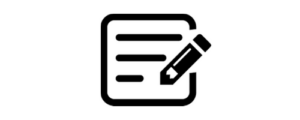TRIO offers a variety of resources to help scholars prepare and apply for graduate or professional education. Staff are available to talk scholars through the process of applying for and financing a variety of program types.
What does researching graduate programs look like?
- Outlining your needs and goals.
- Considering what type of program (Master’s or PhD) best fits you.
- Understanding how funding works for graduate programs, as well as what you can afford.
- Evaluating the institution and program for reputation, opportunity and fit.
- Assessing the program’s location and cost of living.
- Understanding requirements for admission.
Why is it important to research programs before applying?
Researching programs will ensure that you…
- have time to request relevant recommendations and tailor application materials.
- have the opportunity to engage with coursework that is relevant to your career trajectory.
- will be able to build a professional network in your field of interest.
- complete projects that represent your mission, goals and professional brand.
- are supported as a student and professional throughout your time in the program.
How can I research programs successfully?
- Start by listing a few potential programs.
- Draft a personal statement that identifies why you want to attend graduate school, as well as your educational goals.
- Set up informational interviews with graduate student(s) at WashU to identify search strategies that have worked well in the past.
- Identify several programs that you might be interested in completing. These should be school specific so that you can begin to compare requirements for various programs.
- Set up interviews with faculty, alumni and current students at each program.
What types of questions should be included in an informational interview with faculty, alumni and current students?
- What type of curriculum does the program require? (Number of credit hours, required internships or practicums, research, thesis, etc.)
- How do most students pay for their master’s or professional programs? Are there fellowships or assistantships available to all accepted students? Does financial aid cover cost of living?
- Do faculty members have professional experience outside of academia? Are they recognized within their own professional fields?
- Do you feel as though you are supported socially, emotionally and academically on campus? In what ways? Can you identify faculty or staff that you feel comfortable reaching out to?
Why should I prepare early for letters of recommendation?
One of the most important components of your graduate and professional school applications is recommendations. Simply finding professors that will write a general letter on your behalf is not enough: you should seek to connect with professionals that know you well and will individualize their message. To do so, you’ll need to build relationships with mentors, advisers and professors as soon as you decide what graduate program you are interested in. See the Center for Career Engagement’s guide to understand what types of individuals you should ask depending on the type of program.
How can I start to build professional relationships that would lead to recommendations?
It can be intimidating to speak one-on-one with advisers or professors, and this sometimes prevents students from successfully preparing for graduate school. The important thing to remember, though, is that professors are there to help you succeed and can be great resources for building your academic and professional brands. Consider doing some of the following:
- Set up informational interviews with advisers and check in regularly to maintain rapport.
- Identify professors that have similar career paths and enroll in their upper division courses.
- Visit those professors during office hours to discuss their research and community work, not just course content.
- Consider asking about opportunities for research or independent study.
- Share articles, research or policy of interest via email to keep conversation flowing.
- Be conscientious about how often you reach out. Balance regular communication with respect for the professor’s time.
What qualities or characteristics should a recommender have?
Recommenders, whether they are faculty, staff or community professionals, should:
- Have known you for at least one year.
- Be able to identify how your strengths will help you succeed in a graduate program.
- Be able to abide by deadlines (like those required by graduate applications!)
- Be recognized for work accomplished in their field.
- Have a connection to your career or degree path(s) of interest.
How should I request a recommendation letter?
Ask! Set up a meeting or attend office hours to request the professor’s or adviser’s help. Make sure to take relevant forms and your statement of purpose, resume and writing samples with you to the meeting.
The professor agreed to write a recommendation! What do I do next?
- Send the recommender an initial thank you letter. (Written is best!)
- Include a summary of the programs you’re applying for and what skills you’d like to highlight.
- Give a description of the recommendation process for each program. Include deadlines that are a week or two earlier than required, just in case.
- Ask whether they would like reminder emails throughout the process.
TRIO Office Hours
South 40: Gregg Hall, Lower level
Monday-Friday, 8:30 a.m.-5 p.m.

Graduate School Applications
Programs Comparison Worksheet
Guide your research to determine which program best fits your educational and professional goals. Print programs comparison worksheet (PDF) or download an electronic form of the programs comparison worksheet (XLSX).
Applications Tracker
Use this worksheet to keep track of your graduate school applications. Applications tracker in PDF format, applications tracker in Excel format.
Interested in a PhD?
Consider applying to be a McNair Scholar! This federal program, hosted by Saint Louis University, provides St. Louis undergraduates the opportunity to participate in research, seminars, internships, conference presentations, faculty mentoring, and more! All will support your professional growth and prepare you for graduate and doctoral education. For eligibility requirements and to apply, visit SLU’s website.
Graduate Test Preparation
GRE, LSAT, & MCAT Preparation Courses
The Learning Center offers test preparation at a discount for TRIO scholars. Attend any of the 8-12 week courses! See more information and register for GRE, LSAT and MCAT courses.
Deadlines
- GRE Registration (Regular Start) – TBD
- MCAT Registration (Regular Start) – TBD
Testing Fee Waivers
Currently, the GRE, LSAT and MCAT all offer fee reduction waivers that offer free preparation materials and up to 100% discount on one or more testing fees. Interested scholars should connect with TRIO staff for any guidance on the processes, which require several steps. Follow the links below for eligibility and application materials!
GRE Fee Reduction Waiver
LSAT Fee Waiver
MCAT Fee Reduction Waiver
